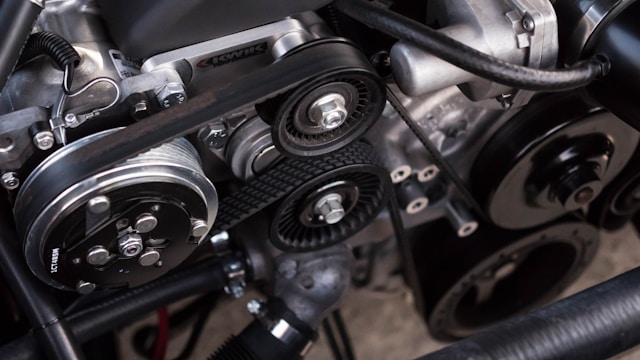Automobiles are indispensable assets in modern society, facilitating transportation and mobility. However, similar to any complex machinery, cars are subject to wear and tear, requiring regular maintenance and occasional repairs. Understanding the dynamics of car repair costs is crucial for every vehicle owner as it enables informed decision-making and effective cost management. This article evaluates the principal factors influencing car repair expenses and provides actionable strategies to minimize them.
Factors Affecting Car Repair Costs
Several factors contribute to the variation in car repair expenses, making it essential to comprehend the underlying dynamics governing auto repair services near you to underpin informed decision-making. Understanding these factors can empower car owners to make informed decisions regarding maintenance and repair services, ultimately minimizing expenses and optimizing the longevity of their vehicles.
1. Vehicle Make and Model
Different vehicle brands and models exhibit distinct engineering designs and component specifications. Consequently, repair costs vary significantly depending on the make and model of the car; for example, luxury or imported vehicles often entail higher repair expenses due to the specialized parts and labor involved.
2. Age and Mileage
The age and mileage of a vehicle are crucial determinants of its repair costs. Older cars typically necessitate more frequent repairs and replacements of worn-out components, thereby escalating maintenance expenses. Additionally, high-mileage vehicles are prone to mechanical failures, further augmenting repair costs.
3. Severity of the Issue
The nature and severity of the mechanical or electrical problem profoundly influence repair costs. Minor issues such as replacing a fuse or fixing a small leak incur relatively modest expenses. Conversely, major repairs involving engine overhauls, transmission replacements, or significant bodywork entail substantial financial outlays.
4. Labor Costs
Labor charges constitute a significant portion of car repair expenses. Mechanic rates vary depending on factors such as location, shop reputation, and expertise. Furthermore, the complexity of the repair task influences the time required for completion, thereby impacting labor costs.
5. Parts and Component Prices
The cost of replacement parts and components significantly contributes to repair expenses. Genuine OEM (Original Equipment Manufacturer) parts tend to be more expensive than aftermarket alternatives, although they often offer superior quality and compatibility. Additionally, certain vehicles may require specialized or imported parts, further elevating repair costs.
Minimizing Car Repair Costs
Although car repairs are inevitable, proactive measures can mitigate expenses and prolong a vehicle’s lifespan. By implementing preventative maintenance strategies and investing in quality repairs and components, car owners can effectively reduce the financial burden associated with vehicle maintenance, guaranteeing a smoother and more economical driving experience.
1. Regular Maintenance
Adhering to the manufacturer’s recommended maintenance schedule is paramount for preserving your car’s performance and reliability. Routine tasks such as oil changes, fluid checks, and tire rotations help prevent premature wear and identify potential issues early, reducing the likelihood of costly repairs.
2. DIY Repairs
For minor repairs and maintenance tasks, consider undertaking do-it-yourself (DIY) initiatives if you possess the necessary skills and tools. DIY repairs can substantially reduce labor expenses, empowering drivers to save money while enhancing their automotive proficiency. However, exercise caution and seek professional assistance for complex or safety-critical repairs.
3. Comparison Shopping
When faced with significant repair expenses, solicit multiple quotes from reputable auto repair shops to compare prices and service offerings. Request itemized estimates detailing labor costs, parts prices, and any additional fees to make an informed decision. Beware of excessively low quotes, as they may indicate subpar workmanship or the use of inferior parts.
4. Prioritize Repairs
In situations where multiple repairs are warranted, prioritize essential repairs to address safety concerns and prevent further damage. Assess the urgency and impact of each repair task on a vehicle’s functionality and safety, allocating resources judiciously to minimize expenses.
5. Preventive Measures
Invest in preventive measures such as rustproofing, undercoating, and installing protective accessories to shield a vehicle from environmental hazards and premature deterioration. Additionally, practicing defensive driving techniques and maintaining a cautious driving demeanor can mitigate the risk of accidents and subsequent repair costs.
Conclusion
Understanding the factors influencing car repair costs empowers vehicle owners to make informed decisions and adopt cost-effective strategies to minimize expenses. By embracing proactive maintenance practices, leveraging DIY initiatives where feasible, and exercising diligence in selecting repair services, individuals can safeguard their finances while ensuring the longevity and reliability of their automobiles. Ultimately, a combination of preventive measures and prudent cost management techniques is key to mitigating the financial burden associated with car repairs.







